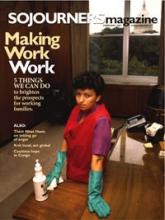Thich Nhat Hanh has published nearly 100 books and is one of the best-known teachers of Zen Buddhism in the world today.
In the early 1960s his practice of what he termed “engaged Buddhism” led him to create the School for Youth and Social Services to provide education, housing, and medical care for victims of war in his native Vietnam. In 1966, Nhat Hanh visited the United States and Europe on a peace mission and was forbidden to return home. A year later Martin Luther King Jr. nominated him for the Nobel Peace Prize.
For nearly 25 years his home in exile has been the monastery of Plum Village in southern France, where he continues to live with his community of Buddhist monks and nuns. In October 2006, Thåy—“teacher,” as he is affectionately known—turned 80 years old.
Nhat Hanh was interviewed in Plum Village by filmmaker Martin Doblmeier of Journey Films for a documentary on forgiveness to be broadcast on public television in 2007.
Martin Doblmeier: During the Vietnam War your own people found themselves deeply divided. Talk about the lessons learned from the peace movement then.
Thich Nhat Hanh: There was a lot of suffering and people found themselves in a situation where they had become enemies of each other. So in such a situation you have to find a way to survive and to help others survive. We had to show people the way to act properly, because if you don’t have peace within yourself it is very difficult to work for peace. Our thinking was, the other person is not our enemy. Our enemies are misunderstanding, discrimination, violence, hatred, and anger. With that kind of insight we conducted the peace movement.
Doblmeier: But over the years of war you were witness to so much suffering and tragedy. How could you not be overcome with anger?
Read the Full Article
